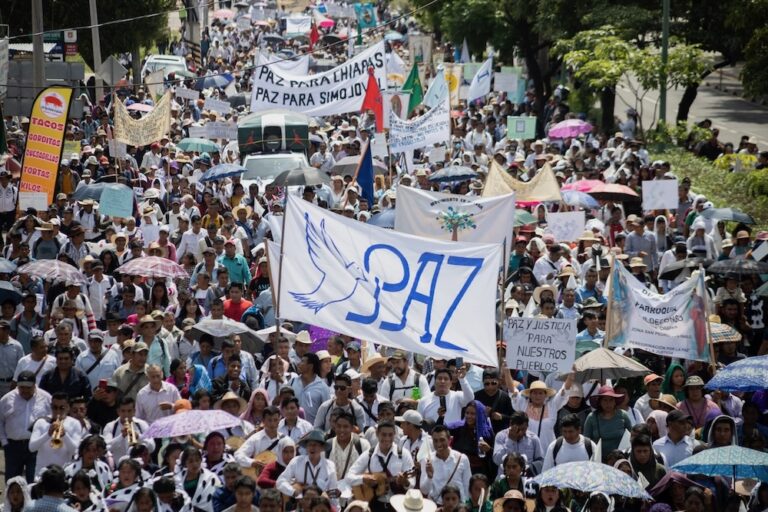A new report released by Freedom House and the International Center for Journalists (ICFJ) finds that the dangers that journalists face in Mexico extend to cyberspace, with a growing number of murders and cyber-attacks against those reporting on corruption and drug-trafficking.
(Freedom House/IFEX) – A new report released by Freedom House and the International Center for Journalists (ICFJ) finds that the dangers that journalists face in Mexico extend to cyberspace, with a growing number of murders and cyber-attacks against those reporting on corruption, organized crime, and drug-trafficking. Most Mexican journalists have been attacked or know someone who has been attacked, and many lack the basic knowledge to remain safe using new technologies.
The survey of 102 journalists and bloggers in 20 Mexican states shows that as journalists increasingly use online platforms, social networks, and mobile devices to post comments or reports about crime and corruption, they are more likely they to face serious digital risks to their identity and privacy. The most serious risks, according to survey respondents, were cyber-espionage and email-account hacking.
“There are very real risks related to the use of digital and mobile phone technologies, only some of which can be overcome through the use of circumvention tools and other security measures,” said Mariclaire Acosta, Freedom House’s Mexico project director. “The findings of the survey will help to raise awareness about these risks, as well as provide insight into the design of cyber security trainings that can help journalists continue their important work as safely as possible.”
Key findings:
– Nearly 70 percent of journalists have been threatened or attacked and 96 percent of journalists know a colleague who has been attacked because of their work.
– More than half of the survey respondents have little to no experience using tools to safely store and erase documents.
– 50 percent of survey participants mix personal and professional information on Facebook and Twitter, which can make their identity public and put their personal security at risk.
Mexican government agencies and criminal organizations are increasingly using digital and mobile surveillance technologies to gather intelligence on journalists and bloggers. The survey outlined several recommendations, including urgent training to increase digital and mobile security, encouraging media editors to provide resources on digital security, and inviting journalists to build a network dedicated to online and mobile security.
To read the full survey, click here.
Mexico is rated Partly Free in Freedom in the World 2013, Not Free in Freedom of the Press 2012 and Partly Free in Freedom on the Net 2012.


